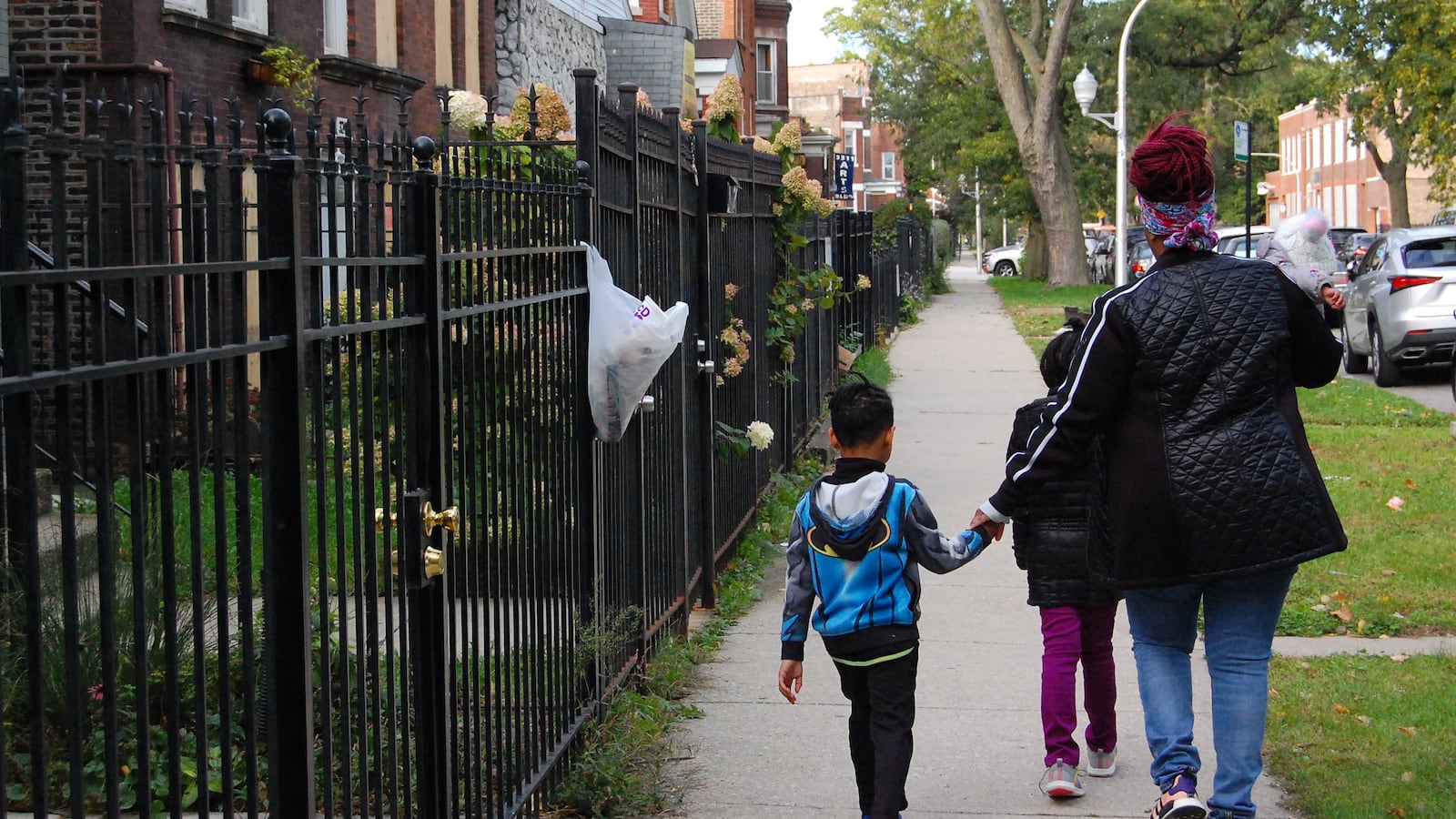
As our strike continues and teachers desperately wait to get back to our students, I can’t help but think about my own experience when I was in elementary school and how vastly different it is than the ones in which my students live.
When I was 11, my dad lost his fight with pancreatic cancer. He had been raising my sister and me by himself for years and almost everyone in our school knew him. When he died, my sister and I received an outpouring of support from our school in the form of cards, pre-cooked meals, and constant visitors.
Then, our district — Park Ridge, a suburb northwest of Chicago — offered several kinds of support that helped ease the grief when the food, cards, and visitors stopped coming. Our middle school had a fully staffed counselor’s office and, as a result, I received weekly one-on-one counseling sessions, a weekly “Grief Group” with my peers who had also lost loved ones, and an unlimited hall pass that I could use anytime I was upset or needed to reset for a bit. I remember my counselor set me up with a youth work placement at the local public library so that I could have something to do on the weekends instead of sitting in a house that didn’t feel like home anymore.
That experience was on my mind when I started teaching in Chicago and began working with students roughly the same age as I had been during the worst moments of my life. During my first year of teaching, I had a sweet, smart, quiet, 10-year-old student named Shawn. Shawn lived down the street from the school with his mom, dad, and 3-year-old sister. One night while his mom was at work, someone broke into Shawn’s house and murdered his father, shooting him multiple times while Shawn and his little sister watched.
Shawn’s dad was dead, but there wouldn’t be counseling sessions, “Grief Group,” hall passes, or youth work placements for him. Instead, Shawn returned to school without a single measure of additional support or service to help him through an unimaginable tragedy beyond the kind words that my colleagues and I offered. Our school social worker was only part-time and had an overflowing workload. Our school counselor was similarly burdened and constantly pulled to do other administrative tasks, rarely having the opportunity to actually help students.
Shawn’s trauma would be compounded by the general lack of educational resources available to help him — I knew that his entire life trajectory would never be the same.
Looking back, I see how incredibly privileged I was to be part of a school district that treated me like I was a human being before I was a student. Embedded in the district’s policies and practices was an understanding that grief and trauma weren’t things that students could turn off or put away, but rather that we carry them with us all the time — even when we go to school. Losing a parent is never easy, but there were protocols and people in place to ensure that I didn’t go through it alone.
My students deserve the same support that my sister and I received, and to be treated by their school and district as valuable, worthy human beings. As the leaders of our city negotiate today, I hope that we are able to make progress toward that kind of future.
Kelsey Arsenault is a fifth-grade math teacher at Marquette School of Excellence. She is a member of the Chicago Teachers Union and a fellow with Educators for Excellence-Chicago, a teacher-led education policy organization.
About our First Person series:
First Person is where Chalkbeat features personal essays by educators, students, parents, and others trying to improve public education. Read our submission guidelines here.

